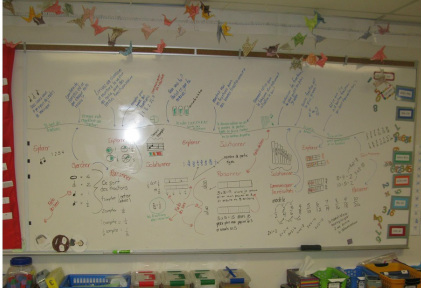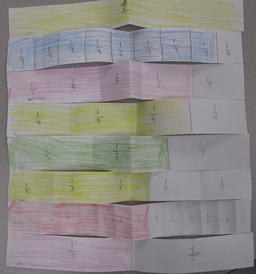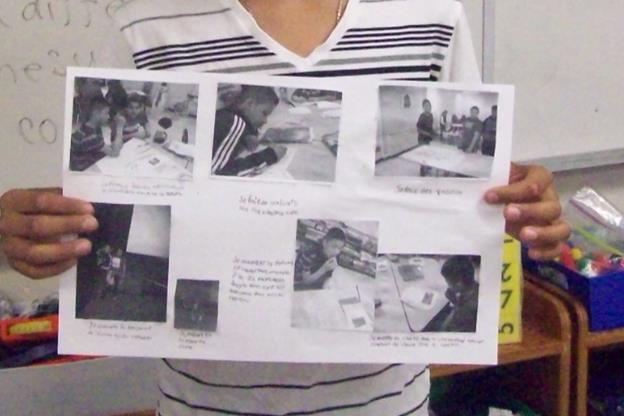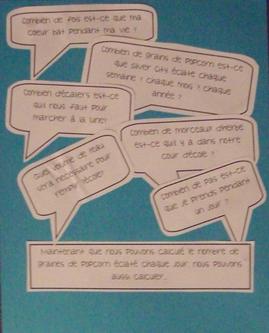Reasoning
Reasoning mathematically involves synthesising new and old
ideas, refining thinking, deciding what is important and what is not, putting
all the ideas together in a way that makes sense to the learner and in a way
that can be shared with others as proof of new discovery.
Throughout our experiences students construct relationships between the various mathematical representations and the lived problem scenario.
Connections are established between mathematical ideas, between mathematics and ourselves and between mathematics and our world. Students see mathematics as relevant to their lives. They revisit past experiences and search for similarities. They recognize that mathematics is not a collection of unrelated facts and answers but it is an ever expanding adventure that reaches well beyond the four walls of our classroom. They imagine future scenarios where the same strategies could be applied, evaluating the potential success of each.
The desired skills of a mathematician are transferable. They extend to all sorts of learning and life.
Students should come away from our classes as powerful learners who can carry their knowledge into new scenarios to build new understandings and to create new opportunities for themselves and others. This in turn will prepare our students to face the complexities of our rapidly changing world.
Throughout our experiences students construct relationships between the various mathematical representations and the lived problem scenario.
Connections are established between mathematical ideas, between mathematics and ourselves and between mathematics and our world. Students see mathematics as relevant to their lives. They revisit past experiences and search for similarities. They recognize that mathematics is not a collection of unrelated facts and answers but it is an ever expanding adventure that reaches well beyond the four walls of our classroom. They imagine future scenarios where the same strategies could be applied, evaluating the potential success of each.
The desired skills of a mathematician are transferable. They extend to all sorts of learning and life.
Students should come away from our classes as powerful learners who can carry their knowledge into new scenarios to build new understandings and to create new opportunities for themselves and others. This in turn will prepare our students to face the complexities of our rapidly changing world.





